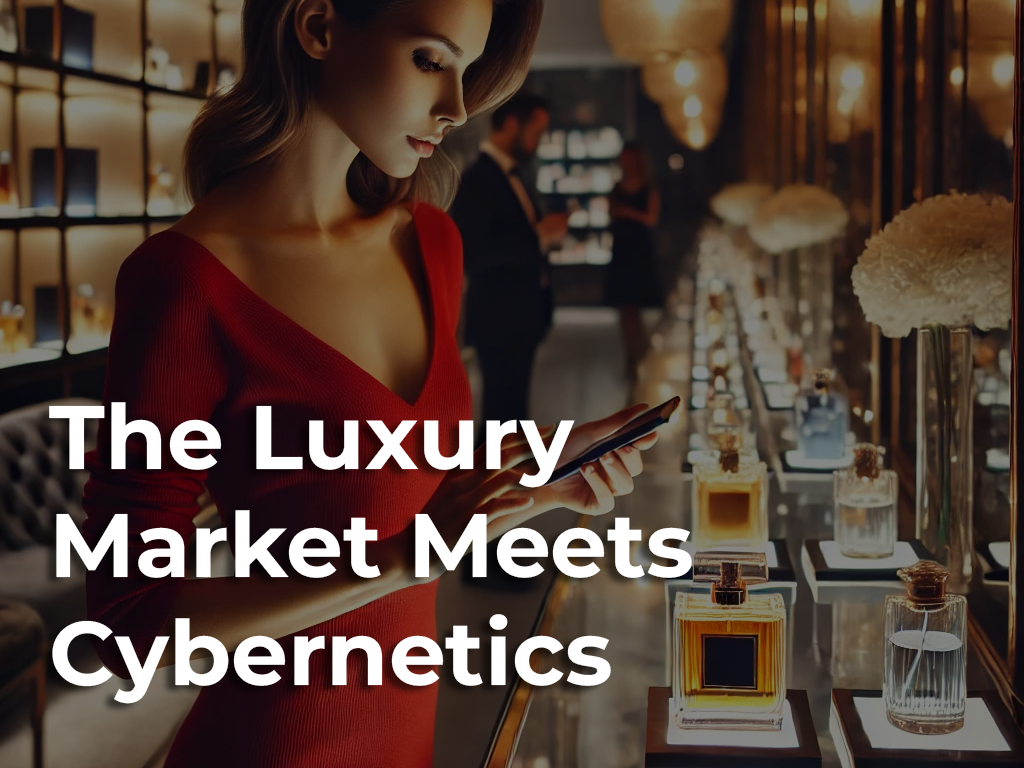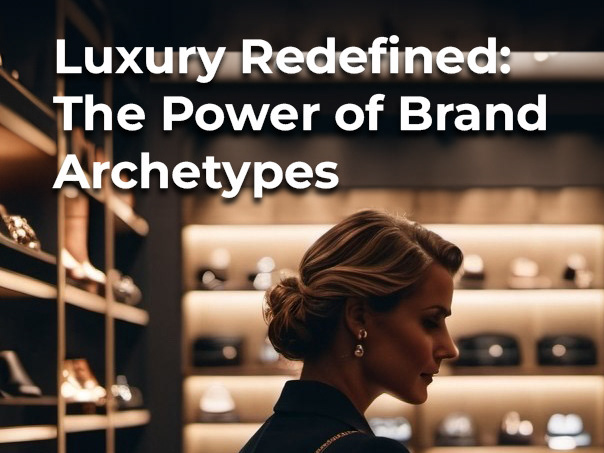Understanding the High-End Consumer Journey
The luxury goods market represents a complex and multifaceted domain within consumer behavior studies. This sector, characterized by high-end products and services, offers a unique lens through which to examine the intricate relationship between consumer psychology and purchasing decisions. In this context, the act of acquiring luxury items transcends mere economic exchange, evolving into a nuanced process that intertwines personal identity, emotional satisfaction, and social signaling.
Luxury Mall
Understanding these psychological elements reveals not only the inner workings of consumer behavior but also offers luxury brands invaluable insights into creating deeper, more meaningful connections with their audience. This exploration illuminates how both consumers and brands navigate the intricate dance of desire and fulfillment in the world of high-end goods.
The Allure of Status and Social Comparison
The pursuit of status is a powerful and driving force behind luxury purchases, vividly illustrated through the lens of social comparison (Li, 2021). This perspective suggests that individuals continuously measure their own worth and success against those around them, seeking markers that signify their place in the social hierarchy. Luxury items, with their distinctive logos and opulent designs, serve as tangible symbols of success and distinction. Take for instance, a Louis Vuitton handbag or a Gucci belt is not merely a product but a statement of personal achievement and social standing, reflecting the wearer’s journey and aspirations in a highly visible way.
The profound impact of status-driven consumption is evident in the way luxury brands are perceived as symbols of accomplishment and refinement. Owning a high-end product can convey a narrative of personal success and sophistication, reinforcing the consumer’s self-image and social identity. Consider, a Rolex watch or a bespoke suit from a renowned tailor is chosen for its quality and for the prestige and story it represents. These luxury goods become emblems of the wearer’s personal narrative, showcasing their achievements and elevating their social presence in a beautifully crafted manner.
Furthermore, luxury brands masterfully harness the concept of social comparison to ignite aspiration and desire among consumers. By positioning their products as symbols of elevated status, they inspire individuals to envision themselves as part of this exclusive world. This strategy creates a powerful emotional pull, motivating consumers to invest in luxury items as a means of achieving and reflecting their own aspirations. Through evocative storytelling and sophisticated marketing, luxury brands encourage consumers to align their personal identity with the refined elegance and success embodied by their products.
The profound impact of status-driven consumption is evident in the way luxury brands are perceived as symbols of accomplishment and refinement. Owning a high-end product can convey a narrative of personal success and sophistication, reinforcing the consumer’s self-image and social identity. Consider, a Rolex watch or a bespoke suit from a renowned tailor is chosen for its quality and for the prestige and story it represents. These luxury goods become emblems of the wearer’s personal narrative, showcasing their achievements and elevating their social presence in a beautifully crafted manner.
Furthermore, luxury brands masterfully harness the concept of social comparison to ignite aspiration and desire among consumers. By positioning their products as symbols of elevated status, they inspire individuals to envision themselves as part of this exclusive world. This strategy creates a powerful emotional pull, motivating consumers to invest in luxury items as a means of achieving and reflecting their own aspirations. Through evocative storytelling and sophisticated marketing, luxury brands encourage consumers to align their personal identity with the refined elegance and success embodied by their products.
Self-Expression and Identity
Luxury goods transcend their material value, serving as intimate extensions of personal identity and self-expression (Li, 2021). Self-concept theory highlights how our possessions play a crucial role in shaping how we view ourselves and how we wish to be perceived by others. When consumers choose luxury brands or styles, they are engaging in a personal act of expression, curating a reflection of their inner selves. This idea is epitomized by the choice a luxury car like a Tesla or a designer dress from Chanel is about embodying a particular image and set of values that resonate with their personal aspirations.
The selection of luxury items can articulate a consumer’s personal narrative and desired self-image with remarkable clarity. A Rolex watch or a custom-tailored suit becomes a symbol of the wearer’s lifestyle, values, and social positioning. Recognizing this deep connection, luxury brands craft their identities to resonate with the self-concept and aspirations of their target audience. By aligning their products with the personal stories and values of their consumers, luxury brands foster a more profound emotional bond and enhance the sense of personal expression through their offerings.
Additionally, luxury brands use sophisticated marketing strategies to enhance this sense of personal expression. Through compelling storytelling and evocative brand positioning, they create narratives that resonate with consumers’ self-perceptions and aspirations. This approach allows consumers to see their luxury purchases as extensions of their own identity, reinforcing the emotional connection to the brand and its products. By celebrating the unique personal stories and values of their consumers, luxury brands transform each purchase into a meaningful reflection of individual identity and personal journey.
The selection of luxury items can articulate a consumer’s personal narrative and desired self-image with remarkable clarity. A Rolex watch or a custom-tailored suit becomes a symbol of the wearer’s lifestyle, values, and social positioning. Recognizing this deep connection, luxury brands craft their identities to resonate with the self-concept and aspirations of their target audience. By aligning their products with the personal stories and values of their consumers, luxury brands foster a more profound emotional bond and enhance the sense of personal expression through their offerings.
Additionally, luxury brands use sophisticated marketing strategies to enhance this sense of personal expression. Through compelling storytelling and evocative brand positioning, they create narratives that resonate with consumers’ self-perceptions and aspirations. This approach allows consumers to see their luxury purchases as extensions of their own identity, reinforcing the emotional connection to the brand and its products. By celebrating the unique personal stories and values of their consumers, luxury brands transform each purchase into a meaningful reflection of individual identity and personal journey.
The Emotional Connection
Luxury brands excel at forging deep emotional connections with their customers, transcending mere satisfaction with a product. Emotional branding taps into profound feelings such as nostalgia, aspiration, and personal reward, crafting a narrative that resonates on a deeply personal level. This is exemplified by Tiffany & Co.'s iconic blue box and timeless, elegant designs transform each piece of jewelry into a cherished symbol of significant life moments and personal milestones. This emotional connection enhances the sense of celebration and love, making every interaction with the brand a deeply meaningful and memorable experience.
This emotional resonance often cultivates a powerful sense of brand loyalty, where consumers develop a near-sacred attachment to their chosen brands (Xi et al., 2022). Many describe their relationship with luxury brands in terms that humanize the products, attributing personal significance and emotional depth to their acquisitions. A clear expression of this can be seen in Apple enthusiasts, who often express a profound sense of pride and personal connection with their products, viewing them as symbols of their achievements and lifestyle. This strong emotional bond enhances the perceived value of the products and contributes to a more gratifying and meaningful consumer experience.
Luxury branding connects deeply by aligning the brand’s narrative with consumers' personal values and experiences. This approach involves creating compelling stories that resonate on a deep level, such as emphasizing the brand's heritage or marking significant milestones. By focusing on emotional elements like sentimentality, personal achievement, and exclusivity, luxury brands elevate their products to symbols of life's most meaningful moments. Enhanced by personalized interactions and bespoke experiences, this emotional engagement turns each purchase into a powerful expression of personal identity. Such a strategy not only fosters deeper and more enduring consumer relationships but also strengthens brand loyalty and overall emotional satisfaction.
This emotional resonance often cultivates a powerful sense of brand loyalty, where consumers develop a near-sacred attachment to their chosen brands (Xi et al., 2022). Many describe their relationship with luxury brands in terms that humanize the products, attributing personal significance and emotional depth to their acquisitions. A clear expression of this can be seen in Apple enthusiasts, who often express a profound sense of pride and personal connection with their products, viewing them as symbols of their achievements and lifestyle. This strong emotional bond enhances the perceived value of the products and contributes to a more gratifying and meaningful consumer experience.
Luxury branding connects deeply by aligning the brand’s narrative with consumers' personal values and experiences. This approach involves creating compelling stories that resonate on a deep level, such as emphasizing the brand's heritage or marking significant milestones. By focusing on emotional elements like sentimentality, personal achievement, and exclusivity, luxury brands elevate their products to symbols of life's most meaningful moments. Enhanced by personalized interactions and bespoke experiences, this emotional engagement turns each purchase into a powerful expression of personal identity. Such a strategy not only fosters deeper and more enduring consumer relationships but also strengthens brand loyalty and overall emotional satisfaction.
The Dopamine Effect
The anticipation of acquiring a luxury item triggers the release of dopamine, a neurotransmitter associated with pleasure and reward, infusing the process with a sense of excitement and joy (Karamanis, 2022). This neurological response makes the prospect of owning a new high-end item irresistibly appealing. This phenomenon is exemplified by the thrill of waiting for a new designer handbag or an exclusive watch can generate intense feelings of pleasure and anticipation. This dopamine-driven excitement transforms the luxury buying experience into a celebration of indulgence and personal gratification.
However, the dopamine effect can be short-lived, leading to a cycle of continual pursuit. Once the initial thrill of a purchase diminishes, consumers may seek out new luxury items to recapture that sense of pleasure. This pattern of behavior highlights how the pursuit of pleasure and reward can drive habitual luxury consumption. Such a behavior is reflected in the fleeting excitement of acquiring a new luxury car can quickly fade, prompting the consumer to pursue another high-end purchase to experience that same dopamine-driven thrill.
Understanding the dopamine effect provides insight into why luxury consumption can become a recurring behavior for some individuals. The quest for the dopamine rush creates a pattern of continual buying as consumers seek to replicate the joy and satisfaction associated with their previous acquisitions. This cyclical behavior highlights the crucial role of neurological responses in luxury consumption, underscoring the need for managing consumer expectations and promoting a more mindful approach to satisfaction. This approach can be seen in brands that promote a mindful approach, such as through curated content that encourages reflection on the emotional value of their purchases, brands can enhance the overall consumer experience, build lasting loyalty, and reinforce the emotional gratification associated with their products.
However, the dopamine effect can be short-lived, leading to a cycle of continual pursuit. Once the initial thrill of a purchase diminishes, consumers may seek out new luxury items to recapture that sense of pleasure. This pattern of behavior highlights how the pursuit of pleasure and reward can drive habitual luxury consumption. Such a behavior is reflected in the fleeting excitement of acquiring a new luxury car can quickly fade, prompting the consumer to pursue another high-end purchase to experience that same dopamine-driven thrill.
Understanding the dopamine effect provides insight into why luxury consumption can become a recurring behavior for some individuals. The quest for the dopamine rush creates a pattern of continual buying as consumers seek to replicate the joy and satisfaction associated with their previous acquisitions. This cyclical behavior highlights the crucial role of neurological responses in luxury consumption, underscoring the need for managing consumer expectations and promoting a more mindful approach to satisfaction. This approach can be seen in brands that promote a mindful approach, such as through curated content that encourages reflection on the emotional value of their purchases, brands can enhance the overall consumer experience, build lasting loyalty, and reinforce the emotional gratification associated with their products.
Quality and Craftsmanship: More Than Just Materials
Luxury Shopping
While psychological factors are deeply influential, the intrinsic qualities of luxury items—such as superior materials and meticulous craftsmanship—remain central to their allure (Batat, 2023). Luxury consumers often justify their investments by celebrating the exceptional quality and artistry embedded in these products. This devotion to excellence is reflected in the creation of a hand-crafted Swiss watch or a bespoke suit —both representing not only status but also the artistry and care woven into their making. This appreciation for fine craftsmanship aligns with the consumer’s desire to experience and own the finest things life has to offer.
This focus on quality and craftsmanship resonates with the consumer’s pursuit of self-actualization, fulfilling the need for extraordinary and meaningful experiences. High-end products embody a commitment to excellence and exclusivity, reflecting the consumer’s refined taste and aspirations. This alignment with the consumer’s values enhances the perceived value of luxury goods, making each purchase a celebration of personal refinement and exceptional quality.
Moreover, luxury brands often spotlight their dedication to quality and craftsmanship as a core aspect of their identity. By showcasing the intricate details and artisanal skills involved in their creations, brands create a narrative that emphasizes their commitment to excellence. This focus on quality not only justifies the premium price but also enriches the consumer’s experience, transforming each luxury acquisition into a meaningful and rewarding journey.
Moreover, luxury brands often spotlight their dedication to quality and craftsmanship as a core aspect of their identity. By showcasing the intricate details and artisanal skills involved in their creations, brands create a narrative that emphasizes their commitment to excellence. This focus on quality not only justifies the premium price but also enriches the consumer’s experience, transforming each luxury acquisition into a meaningful and rewarding journey.
The Experience Factor
In today’s luxury market, consumers increasingly prioritize experiences over material possessions, a trend supported by psychological research indicating that experiences often provide greater long-term happiness than tangible goods (Chhatwal & Chhatwal, 2024). Luxury brands have embraced this shift by crafting immersive and personalized experiences that transcend traditional product ownership. As demonstrated by Ritz-Carlton, the brand excels in creating unique and memorable experiences through its exclusive events and bespoke services, catering to the desire for luxury and personalization. The brand offers meticulously curated experiences such as private galas, intimate wine tastings, and exclusive culinary events hosted by renowned chefs, ensuring each stay is not just a service but a distinctive occasion. Additionally, Ritz-Carlton’s personalized services, including tailored travel itineraries and bespoke wellness experiences, enhance the overall guest experience by anticipating and fulfilling individual preferences. This focus on exclusivity and personalization deepens the emotional connection with guests, reinforcing the brand's commitment to luxury and significantly boosting customer loyalty.
This emphasis on experiential luxury fulfills the psychological need for meaningful and lasting satisfaction. By providing opportunities for bespoke interactions and exclusive experiences, luxury brands offer more than just products; they create opportunities for personal enrichment and joy. These experiences contribute to a deeper sense of fulfillment and happiness, reinforcing the value of luxury beyond mere material possessions (Johnson, 2023).
Experiential marketing strategies also allow luxury brands to differentiate themselves in a competitive landscape. By focusing on creating memorable and immersive experiences, brands can build stronger emotional connections with their consumers and enhance their overall brand perception. This approach caters to the growing demand for experiential luxury and also reinforces the brand’s commitment to providing exceptional and uniquely personal interactions.
This emphasis on experiential luxury fulfills the psychological need for meaningful and lasting satisfaction. By providing opportunities for bespoke interactions and exclusive experiences, luxury brands offer more than just products; they create opportunities for personal enrichment and joy. These experiences contribute to a deeper sense of fulfillment and happiness, reinforcing the value of luxury beyond mere material possessions (Johnson, 2023).
Experiential marketing strategies also allow luxury brands to differentiate themselves in a competitive landscape. By focusing on creating memorable and immersive experiences, brands can build stronger emotional connections with their consumers and enhance their overall brand perception. This approach caters to the growing demand for experiential luxury and also reinforces the brand’s commitment to providing exceptional and uniquely personal interactions.
Navigating Cognitive Dissonance
Luxury consumers often experience cognitive dissonance, a psychological state where conflicting beliefs or behaviors create discomfort, particularly concerning materialism and ethical considerations (Li, 2021). On one hand, luxury goods provide a sense of status and pleasure; on the other, there may be feelings of guilt related to materialistic behavior or environmental impact. This internal conflict can affect the consumer’s overall satisfaction with their purchases, making it crucial for brands to address these concerns with sensitivity and transparency.
To alleviate cognitive dissonance, many luxury brands are embracing transparency and commitment to ethical practices and sustainability. Brands like Stella McCartney and Patagonia are at the forefront of this movement, openly communicating their efforts to minimize environmental impact and promote responsible sourcing. By highlighting these initiatives, luxury brands help ease consumer guilt and align their values with contemporary expectations of ethical consumption. This transparency not only reduces dissonance but also enhances the brand’s credibility and appeal, fostering a more harmonious relationship with consumers.
Navigating cognitive dissonance also involves proactive communication about ethical and sustainable practices. By being transparent about their commitments to social and environmental responsibility, luxury brands build trust and strengthen their relationship with consumers. This approach not only addresses the internal conflicts faced by consumers but also reinforces the brand’s role in promoting responsible and ethical consumption, enhancing overall consumer satisfaction and loyalty.
To alleviate cognitive dissonance, many luxury brands are embracing transparency and commitment to ethical practices and sustainability. Brands like Stella McCartney and Patagonia are at the forefront of this movement, openly communicating their efforts to minimize environmental impact and promote responsible sourcing. By highlighting these initiatives, luxury brands help ease consumer guilt and align their values with contemporary expectations of ethical consumption. This transparency not only reduces dissonance but also enhances the brand’s credibility and appeal, fostering a more harmonious relationship with consumers.
Navigating cognitive dissonance also involves proactive communication about ethical and sustainable practices. By being transparent about their commitments to social and environmental responsibility, luxury brands build trust and strengthen their relationship with consumers. This approach not only addresses the internal conflicts faced by consumers but also reinforces the brand’s role in promoting responsible and ethical consumption, enhancing overall consumer satisfaction and loyalty.
What This Means for Luxury Brands
For luxury brands, delving into these psychological drivers is crucial for cultivating profound and lasting connections with their audience. To truly resonate with consumers, brands should focus on creating rich emotional bonds through evocative storytelling and an emphasis on their heritage. Personalized experiences that make customers feel cherished and distinct further enhance this connection, while a spotlight on the unrivaled quality and meticulous craftsmanship of products justifies their premium allure. Additionally, addressing ethical concerns with honesty and prioritizing experiential aspects of luxury can amplify brand appeal and nurture a deeper sense of loyalty among consumers.
1. Creating Emotional Connections: Forge deep, heartfelt connections with consumers by interlacing compelling narratives around your brand and celebrating its heritage. This approach not only builds a stronger emotional bond but also fortifies brand loyalty, making each interaction feel uniquely special and meaningful.
2. Offering Personalized Experiences: Craft bespoke services and tailored interactions that make each customer feel truly valued and unique. By offering personalized experiences, you strengthen the consumer’s emotional attachment to the brand, elevating their overall satisfaction and sense of belonging.
3. Emphasizing Quality and Craftsmanship: Highlight the superior materials and artistry that define your luxury products, underscoring the value that justifies their premium pricing. Emphasizing these elements reinforces the satisfaction derived from owning such exquisitely crafted items and enhances their perceived worth.
4. Addressing Ethical Concerns: Transparently communicate your commitment to ethical practices and sustainability, helping to alleviate any consumer guilt associated with materialism. By demonstrating a genuine dedication to responsible consumption, you build trust and credibility, aligning with the values of today's conscientious consumers.
5. Focusing on Experiential Aspects: Elevate your luxury offerings by creating immersive and exclusive experiences that provide lasting joy and memorable interactions. This focus on experiential marketing not only differentiates your brand but also fosters a deeper, more enduring connection with your clientele.
2. Offering Personalized Experiences: Craft bespoke services and tailored interactions that make each customer feel truly valued and unique. By offering personalized experiences, you strengthen the consumer’s emotional attachment to the brand, elevating their overall satisfaction and sense of belonging.
3. Emphasizing Quality and Craftsmanship: Highlight the superior materials and artistry that define your luxury products, underscoring the value that justifies their premium pricing. Emphasizing these elements reinforces the satisfaction derived from owning such exquisitely crafted items and enhances their perceived worth.
4. Addressing Ethical Concerns: Transparently communicate your commitment to ethical practices and sustainability, helping to alleviate any consumer guilt associated with materialism. By demonstrating a genuine dedication to responsible consumption, you build trust and credibility, aligning with the values of today's conscientious consumers.
5. Focusing on Experiential Aspects: Elevate your luxury offerings by creating immersive and exclusive experiences that provide lasting joy and memorable interactions. This focus on experiential marketing not only differentiates your brand but also fosters a deeper, more enduring connection with your clientele.
By embracing these strategies, luxury brands can adeptly navigate the intricate landscape of consumer psychology, forging deeper bonds with their discerning audience and securing a distinguished position in the luxury market.
Conclusion
Exploring the psychology behind luxury purchases unveils a rich interplay of social, emotional, and personal influences that shape consumer behavior. Gaining a nuanced understanding of these psychological drivers enables consumers to make more thoughtful purchasing decisions and offers brands invaluable insights into engaging their audience. As the luxury market continues to evolve, it becomes increasingly evident that the essence of high-end goods lies not merely in the items themselves but in how they enhance and reflect the consumer's inner world. By addressing these psychological factors, both consumers and brands can navigate the world of luxury with greater awareness and fulfillment.
References
Batat, W. (2023). The pursuit of luxury or luxuries? A framework of the past, present, and future of luxury research. Consumption Markets & Culture, 26(2), 103–116. https://doi.org/10.1080/10253866.2023.2185233
Chhatwal, G., & Chhatwal, G. (2024, March 7). 4 Luxury market trends to watch in 2024 and Beyond. Kadence. https://kadence.com/en-us/4-luxury-market-trends-to-watch-in-2024-and-beyond/
Johnson, M. (2023, August 8). How luxury Brands can Harness their Market-Driving Influence. Neuroscience Of. https://www.neuroscienceof.com/branding-blog/luxury-marketing-market-driving-tastemakers-consumer-experiential
Karamanis, J. (2022, September 26). Dopamine and buying behaviour. THE FASHION PSYCHOLOGY. https://www.thefashionpsychology.com/blog/dopamine-and-buying-behaviour-fashion-psychology
Li, S. (2021, January). Analysis of luxury brand and consumer psychology. ResearchGate. Retrieved July 31, 2024, from https://www.researchgate.net/publication/352404001AnalysisofLuxuryBrandandConsumerPsychology
Xi, X., Yang, J., Jiao, K., Wang, S., & Lu, T. (2022). “We buy what we wanna be”: Understanding the effect of brand identity driven by consumer perceived value in the luxury sector. Frontiers in Psychology, 13. https://doi.org/10.3389/fpsyg.2022.1002275
Chhatwal, G., & Chhatwal, G. (2024, March 7). 4 Luxury market trends to watch in 2024 and Beyond. Kadence. https://kadence.com/en-us/4-luxury-market-trends-to-watch-in-2024-and-beyond/
Johnson, M. (2023, August 8). How luxury Brands can Harness their Market-Driving Influence. Neuroscience Of. https://www.neuroscienceof.com/branding-blog/luxury-marketing-market-driving-tastemakers-consumer-experiential
Karamanis, J. (2022, September 26). Dopamine and buying behaviour. THE FASHION PSYCHOLOGY. https://www.thefashionpsychology.com/blog/dopamine-and-buying-behaviour-fashion-psychology
Li, S. (2021, January). Analysis of luxury brand and consumer psychology. ResearchGate. Retrieved July 31, 2024, from https://www.researchgate.net/publication/352404001AnalysisofLuxuryBrandandConsumerPsychology
Xi, X., Yang, J., Jiao, K., Wang, S., & Lu, T. (2022). “We buy what we wanna be”: Understanding the effect of brand identity driven by consumer perceived value in the luxury sector. Frontiers in Psychology, 13. https://doi.org/10.3389/fpsyg.2022.1002275



